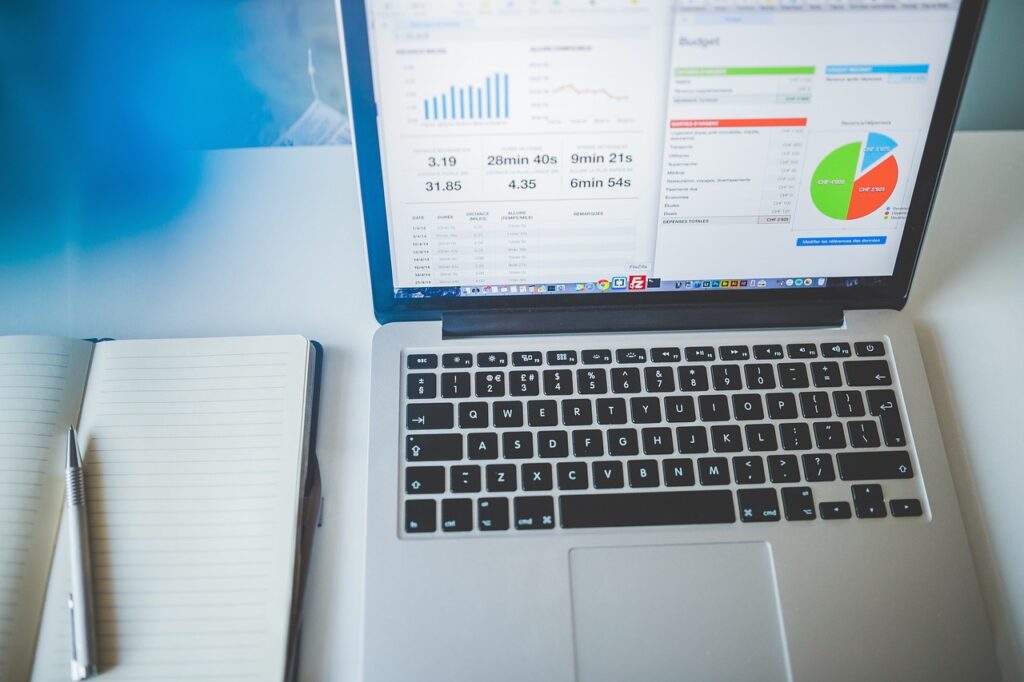Have you ever wondered what economic sectors are set to grow in the future rather than tech? Well, the answer to that question lies around us: sustainability.
Everyone from global corporations to governments has started to take action on sustainability. The changes in both climate and economy have called for immediate action. Recently, many entrepreneurs have entered the field of waste management and sustainability. Waste management companies are using the latest technologies to increase their productivity.
Business Analytics plays an important role in boosting present-day sustainability practices. The following are some utilities of business analytics in waste management & sustainability.

Post Contents
Tracking the Progress of Sustainability
Business Analytics helps businesses to set goals and monitor sustainability progress continuously. Businesses involved in manufacturing services should consider emissions and usage of natural resources.
It helps companies achieve results by continuously monitoring their performance. Companies can take real-time action using the information provided by business analytics. Business analytics practices allow companies to know more about their carbon footprint, waste management, and energy consumption.
Business analytics will help management to set KPIs. Key performance indicators (KPIs) are important aspects of measuring the progress of businesses. With the right business analytics course, you can learn these practices comprehensively.
For example, Siemens, a leading technology company, uses analytics to improve its sustainability. It uses analytics to manage energy consumption and develop solutions to tackle difficulties.
Waste Reduction
Recently, waste management has become an important aspect of sustainability. The increased awareness of waste management has led companies to follow new practices. Companies receive sizable information on waste generation and handling by implementing business analytics.
Waste analysis will help companies to identify and categorize waste into recyclable and non-recyclable. Business analytics helps to identify inefficiencies in waste handling and helps companies take action.
For example, Unilever has a data-driven approach to handling waste. It gathers and analyzes real-time data from different stages of operations. Unilever uses various data practices to improve its operational efficiency. Business analytics helps Unilever analyze KPIs such as waste consumption, reduction, recycling rates, etc.
Most top business analyst certification courses offer case studies and projects to provide industry exposure. You can become a skillful business analyst by taking the best business analyst course.
Clean Energy
Companies are trying to shift to clean energy from non-renewable sources. Clean energy is one of the important aspects of sustainability. Governments around the world have tightened energy regulations to improve environmental consciousness.
With energy being the top priority, companies are trying hard to bring this energy transition. Business analytics, as a tool, plays a crucial role in this transition. It helps companies to analyze energy consumption, identify consumption patterns, and set energy goals.
Companies can predict the energy demand and strategize using business analytics. Furthermore, it helps budget and utilize resources efficiently.
For example, Google uses a data-driven approach to analyze its energy consumption. Also, it effectively integrates renewable energy into its operations. This allows Google to show its commitment to renewable energy shifts and a healthy environment.
Decision Making
Business analytics plays an important aspect in supporting decision-makers and management. Companies can look more closely at operations and environmental impacts using business analytics data.
Business analytics help management set targets for consumption and track the performance perpetually. The decision-makers can spot the areas that need improvement and work on them strategically.
Management can share the sustainability data with the stakeholders, showcasing the company’s commitment to environmental impact.
For example, Reliance Industries uses a data-driven approach to make business responsibility and sustainability decisions. Reliance Industries Limited (RIL) follows an integrated approach to sustainable growth. Using a data-driven approach, RIL has come up with sustainability performance indicators.
Sustainability in Supply Chain
Business analytics help management set targets for consumption and track the performance perpetually. The decision-makers can find the areas that need improvement and work on the solutions effectively.
Business analytics helps companies analyze raw material and transportation data. This data allows them to collaborate strategically with partners to increase sustainable practices.
For example: Starbucks, a leading coffeehouse chain, uses business analytics in sustainable supply chain practices. Starbucks collects and monitors supplier’s data related to farming practices, usage, compliance, and environmental impacts.
These are a few areas where business analytics promotes and optimizes sustainability. Business analytics plays a crucial role in sustainability, and it helps companies in the long run.
By leveraging data-driven insights, companies can measure environmental impacts, follow compliance, identify inefficiencies, and integrate sustainability into the supply chain.
Business Analytics Trends
Business analytics is integral to many of the latest technologies and trends. This includes real-time analytics, augmented analytics, data governance, ESG, IoT, big data analytics, edge computing, and artificial intelligence.
Industries adopt business analytics practices because they help decision-making and enhance business operations. You can explore various business analytics classes online to become a business analyst.
Going forward with a comprehensive business analytics course will benefit you with real-world exposure. A best business analyst course should have the following features such as:
- Hands-on project experience
- Career assistance
- Doubt clearing sessions
- Live classes
- Expert faculty
- Student support facilities
- Assignments & Assessments
Go forward with a business analytics course that offers all these features, it will boost your chances of landing a lucrative job.
Conclusion
Sustainability is the main focus, and governments have tightened regulations due to climate change, water crisis, and carbon footprint. Business Analytics as a tool has enabled companies to handle these sustainability practices effectively. Business analytics is important in a sustainable path, from planning to analyzing to strategizing.
The demand for business analysts is surging due to their productive contribution. Not only in sustainability but business analytics can help businesses in various matters.
If you are an aspiring business analyst, go with this business analytics course, which offers extensive training. This program is designed and curated by expert faculty with years of experience.